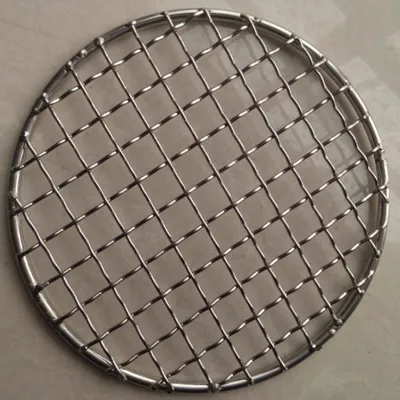-
+86 15030157877
-
sales@galvanizedmetalmesh.com
Aug . 01, 2024 02:46 Back to list
Durable and Reliable Fencing Wire Solutions for Farms and Agricultural Needs
High-Quality Fencing Wire for Farms A Must-Have for Every Agrarian Business
In the ever-evolving world of agriculture, maintaining the integrity and security of farmland is of utmost importance. Farmers and landowners face numerous challenges, from stray animals to unwarranted trespassers. One essential tool that has stood the test of time in ensuring the safety and productivity of a farm is high-quality fencing wire. This article delves into the importance, benefits, and considerations for selecting the best fencing wire for farming needs.
Why Fencing Wire Matters
Fencing wire serves as a physical barrier, protecting crops, livestock, and property. It defines boundaries and keeps unwanted elements at bay. Whether it’s livestock wandering off or wildlife devastating crops, fencing wire can be the difference between a thriving farm and a financial disaster. Moreover, a well-maintained fence not only safeguards resources but also signifies professionalism and dedication to farm management.
Types of Fencing Wire
When it comes to fencing wire, farmers have a variety of options. The most common types include
1. Barbed Wire This is perhaps the most recognized fencing material. It consists of sharp barbs attached to the wire, making it difficult for animals to breach. Barbed wire is ideal for keeping livestock contained and protecting property lines. 2. Electric Fencing Wire This modern solution uses electric currents to deter animals. Electric fences can be highly effective for keeping both livestock and predators at bay. They are adjustable and can be set to varying levels of voltage, making them suitable for different animals. 3. Chain Link Fencing While it’s not traditionally seen in farms, chain link fencing is durable and provides a solid barrier. It's often used in settings where visibility is important, such as around gardens or storage areas.
4. Field Wire (or Stock Wire) This type is specifically designed for fields, featuring a series of vertical and horizontal wires. It’s particularly effective for containing livestock without causing injury.
Choosing High-Quality Fencing Wire
high quality fencing wire farm

When selecting fencing wire, the quality is paramount. High-quality fencing wire is made from materials that resist rust and corrosion, ensuring longevity even in harsh environmental conditions. Here are some aspects to consider
1. Material Look for wires made from galvanized steel or other corrosion-resistant materials. These wires are more durable and capable of withstanding environmental stressors.
2. Gauge The gauge of the wire indicates its thickness. A thicker wire (lower gauge number) typically offers greater strength and resistance against breakage.
3. Coating Some wires come with additional coatings, such as vinyl, which enhance durability and prevent rust. This is particularly beneficial in regions with high moisture levels.
4. Purpose Think about what the fence needs to achieve. Is it meant for containing small animals or securing large livestock? The intended purpose will help dictate the type and gauge of wire needed.
Benefits of Investing in High-Quality Fencing Wire
Investing in high-quality fencing wire can save farmers time and money in the long-term. Superior materials reduce the need for repairs and replacements, allowing farmers to focus on their core operations instead of constant maintenance. Furthermore, a robust and reliable fence enhances peace of mind, allowing farmers to sleep better knowing their assets are protected.
Conclusion
In conclusion, high-quality fencing wire is an essential component of every farm. It not only protects valuable resources but also offers a framework for productive agricultural practices. By understanding the types of fencing wire available and prioritizing quality, farmers can ensure their operations run smoothly and securely for years to come. Investing in the right fencing is not just a necessity; it’s a commitment to a successful agricultural future.
-
Welded Gabion Solutions: Durable & AI-Enhanced Designs
NewsAug.01,2025
-
Premium Welded Gabion Mesh | Robust & Eco-Friendly
NewsJul.31,2025
-
Premium Eco-Friendly Roof Tiles | Affordable & Durable
NewsJul.31,2025
-
Premium Roof Tiles for Durable & Stylish Roofing Solutions
NewsJul.30,2025
-
High-Quality Roof Tiles for Durable & Stylish Roofing Solutions
NewsJul.29,2025
-
High Quality Square Wire Mesh Manufacturer & Supplier for Wholesale
NewsJul.29,2025



